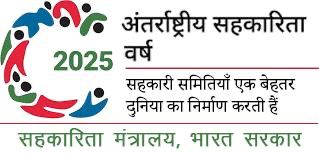समग्र शिक्षा का एक प्रमुख उद्देश्य राज्य शैक्षिक अनुसंधान और प्रशिक्षण परिषदों (एससीईआरटी)/राज्य शिक्षा संस्थानों (एसआईइ) और जिला शिक्षा एवं प्रशिक्षण संस्थानों (डीआईईटी) को शिक्षक प्रशिक्षण की नोडल एजेंसियों के रूप में मजबूत और उन्नत बनाना है। तदनुसार, इसमें भौतिक अवसंरचना को मजबूत बनाने, नए जिला शिक्षा एवं प्रशिक्षण संस्थानों की स्थापना करने, शिक्षक शिक्षकों के वेतन,एससीईआरटी, डीआईईटी और बीआईटीईएस जैसे शिक्षक शिक्षा संस्थानों (टीईआई) को प्रौद्योगिकी सहायता दिए जाने, टीईआई के लिए वार्षिक अनुदान, संकाय विकास सहित कार्यक्रमों और गतिविधियों तथा अनुसंधान गतिविधियों के लिए विशिष्ट परियोजनाओँ के बारे में प्रावधान किए गए हैं। इसके अतिरिक्त, एससीईआरटी शिक्षक प्रशिक्षण के लिए नोडल एजेंसी होने के नाते प्राथमिक,माध्यमिक और वरिष्ठ माध्यमिक विद्यालयों के शिक्षकों तथा एससीईआरटी और डीआईईटी में शिक्षक शिक्षकों के लिए भी वार्षिक सेवाकालीन प्रशिक्षण का एक समेकित कैलेंडर बनाता है ।
शिक्षक शिक्षा में की गई प्रमुख पहलें और उपलब्धियां निम्नलिखित हैं:
- एक बहु-विषयक वातावरण में 4-वर्षीय एकीकृत अध्यापक शिक्षा कार्यक्रम(आईटीईपी) का परिचयःकार्यक्रम का उद्देश्य एनईपी 2020 की नई स्कूल संरचना के अनुसार शिक्षकों को मूलभूत, प्रारंभिक, मध्य और माध्यमिक चरणों के लिए तैयार करना है। इससे यह सुनिश्चित होगा कि शिक्षण व्यवसाय में उत्कृष्ट छात्र प्रवेश करें। इस पाठ्यक्रम को करने वाले छात्र को भारतीय मूल्यों, भाषाओं, ज्ञान, लोकाचार, आदिवासी परंपरा एवं शिक्षा तथा शिक्षाशास्त्र में नवीनतम प्रगति के बारे में अच्छी जानकारी होगी। यह कोर्स 21वीं सदी के कौशल की आवश्यकता को पूरा करता है।
- जिला शिक्षा और प्रशिक्षण संस्थानों (डीआईईटी),2017 के सुदृढ़ीकरण संबंधी दिशानिर्देश, 2017: राष्ट्रीय शिक्षा नीति (1986) के अनुसार,डीआईईटी की परिकल्पना सेवा-कालीन तथा सेवा-पूर्व शिक्षा प्रदान करने के संस्थानों के रूप में की गई थी । हालांकि, कुछ वर्षों से इस ओर से ध्यान हटकर धीरे-धीरे सेवा-पूर्व शिक्षा की ओर चला गया। इसके अलावा,वर्तमान में ऐसी कोई नोडल एजेंसी नहीं है जिसे सेवा-कालीन प्रशिक्षण में विशेषज्ञता हासिल हो और इसलिए इस चुनौती से निपटने के लिए,शिक्षा मंत्रालय ने डीआईईटी के सुदृढ़ीकरण के बारे में दिशानिर्देश बनाए हैं। तदनुसार,राज्यों को डीआईईटी की पुनरसंकल्पना पर विचार करने से पहले दिशानिर्देश में प्रस्तावित मॉडल के अनुसार एक जिलेवार विश्लेषण करने के लिए प्रोत्साहित किया गया है। इससे सेवा-कालीन शिक्षक प्रशिक्षण में और अधिक विशेषज्ञता प्राप्त करने के अवसर मिलेंगे।
- राज्य शैक्षिक अनुसंधान और प्रशिक्षण परिषद (एससीईआरटी)का सुदृढीकरण, 2018: शिक्षा का अधिकार (आरटीई) अधिनियम, 2009 के कारण पिछले दशक में हुए स्कूली शिक्षा के विस्तार और समावेशी शिक्षा की मांग में वृद्धि को देखते हुए,एससीईआरटी की ताकत और कमजोरियों का विश्लेषण करके इसे मजबूत बनाने और संस्था के भीतर की कमियों को दूर करने एवं अन्य संस्थानों के साथ इसके संपर्कों को बेहतर बनाने के लिए एससीईआरटी का मूल्यांकन किया जाना महत्वपूर्ण समझा गया। शिक्षा मंत्रालय ने ‘एससीईआरटी के सुदृढ़ीकरण’ पर एक व्यापक अवधारणा–दस्तावेज बनाया है जो एससीईआरटी के पुनर्गठन,विभिन्न सहायक संरचनाओं और सेवाकालीन शिक्षक प्रशिक्षण की नोडल एजेंसी के रूप में एससीईआरटी के बीच सामंजस्य और संपर्कों पर केंद्रित है।
- सेवाकालीन अप्रशिक्षित शिक्षकों के प्रशिक्षण के लिए शिक्षा का अधिकार (आरटीई) अधिनियम में संशोधन: अप्रशिक्षित सेवाकालीन प्राथमिक शिक्षकों के प्रशिक्षण की अवधि को 31 मार्च, 2019 तक बढ़ाने के लिए आरटीई अधिनियम की धारा 23 (2) में संशोधन करने के प्रस्ताव को संसद के दोनों सदनों द्वारा 1 अगस्त, 2017 को पारित कर दिया गया था। इस संशोधन के अनुसार,सरकारी,सरकारी सहायता प्राप्त और निजी गैर-सहायता प्राप्त स्कूलों में कार्यरत सभी अप्रशिक्षित सेवाकालीन प्राथमिक शिक्षकों को केंद्र सरकार द्वारा अधिकृत शैक्षणिक प्राधिकरण द्वारा निर्धारित की गई न्यूनतम योग्यता 31 मार्च, 2019 तक हासिल कर लेनी चाहिए। यह अध्यापकों और शिक्षण प्रक्रियाओं की समग्र गुणवत्ता में सुधार लाने और परिणामस्वरूप बच्चों के अधिगम परिणामों में वृद्धि को सुनिश्चित करने के लिए किया गया। यह पाठ्यक्रम 3 अक्टूबर, 2017 से शुरू हुआ और कुल 9643007 शिक्षकों ने प्रशिक्षण को सफलतापूर्वक पूरा किया है।
 2 minutes, 41 सेकंड
2 minutes, 41 सेकंड



